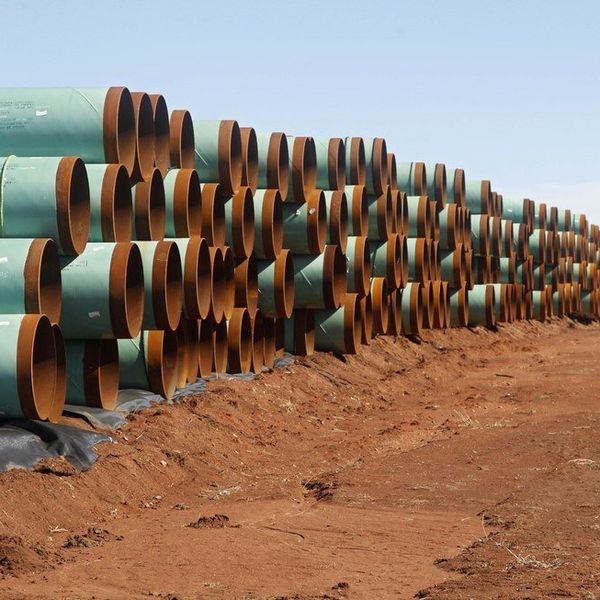If you haven't heard of the Keystone XL pipeline, don't beat yourself up. It was brought up — and promptly tabled by Obama — seven years ago, and hasn't really been talked about since. Its rejection is a huge legislative move on the U.S.'s part, but the majority of the veto's impacts are going to affect Canada.
The Keystone pipeline was built for transporting oil from tar sands in Canada to the Gulf Coast. It's approximately 1,180 miles long, and would carry 800,000 barrels of carbon-heavy petroleum per day. The pipeline in question is essentially an adjustment in location and construction. An operational Keystone pipeline already exists (see header), but issues with the original one have prompted plans for a new design. TransCanada, the organization in charge of the whole project, claims they are the headers of "safe and reliable [operations] of North American energy infrastructure."
The original Keystone passes through several Native American territories, which brought up issues such as polluting local water and food sources, as well as damage to sacred sites. Local communities face similar issues. The new pipeline goes through areas that are largely unpopulated, so as to do little damage to nearby populations. However, this also means that when there are spills, the response time is significantly slower, and those local environments suffer.
Furthermore, those supporting the construction of the new Keystone pipeline say that it will generate jobs, and therefore bolster the economy. However, since the pipeline is controlled by TransCanada, a wholly Canadian energy company, most of the oil profits made off the Keystone would go to Canada's economy, not America's. It would also only create about 40 permanent jobs, and contribute to only 0.02% of the U.S.'s economy. Obama also adds that unemployment in the country is only at 5%, and the U.S. produces more oil than it imports. This is largely why gas prices are so much cheaper nowadays (thanks, Obama).
Most importantly, environmentalists state that the process of extracting oil from Canada's tar sands produces approximately 17% more planet-warming greenhouse gases than conventional methods of oil extraction.
This is ultimately what prompted Obama's rejection: environmental concerns. He stated, "America is now a global leader when it comes to taking serious action to fight climate change, and frankly, approving this project would have undercut that leadership." He hopes that rejecting the construction of the pipeline would symbolically indicate to the rest of the world that the environment is more of a concern than job growth and economies. Justin Trudeau, the newly elected Prime Minister of Canada, has agreed that helping to slow climate change is more important than opinions from different interest groups.





















